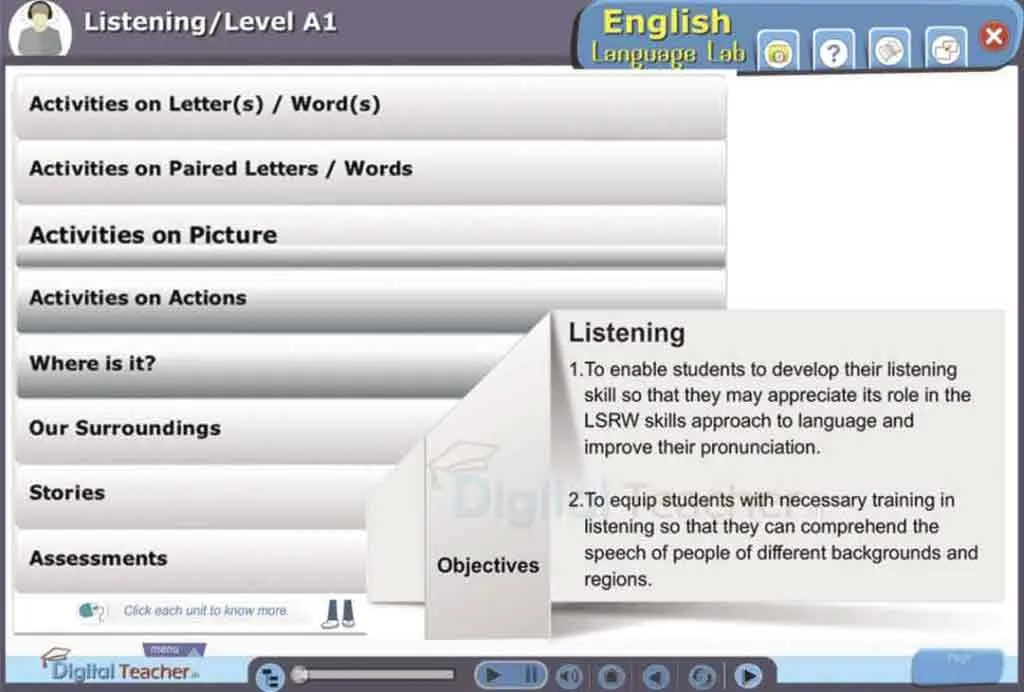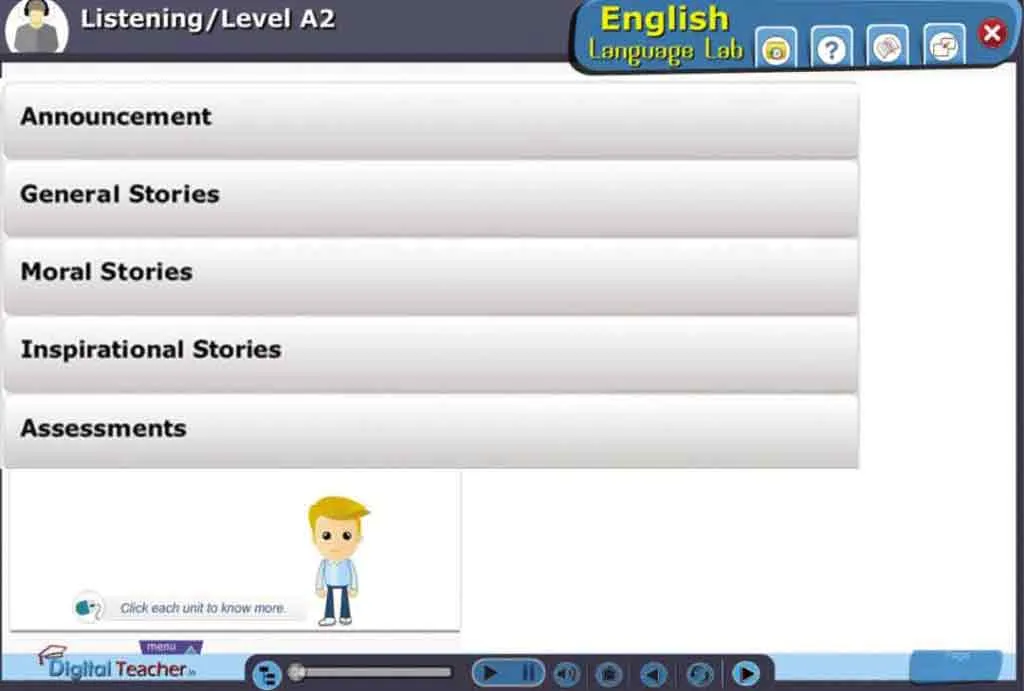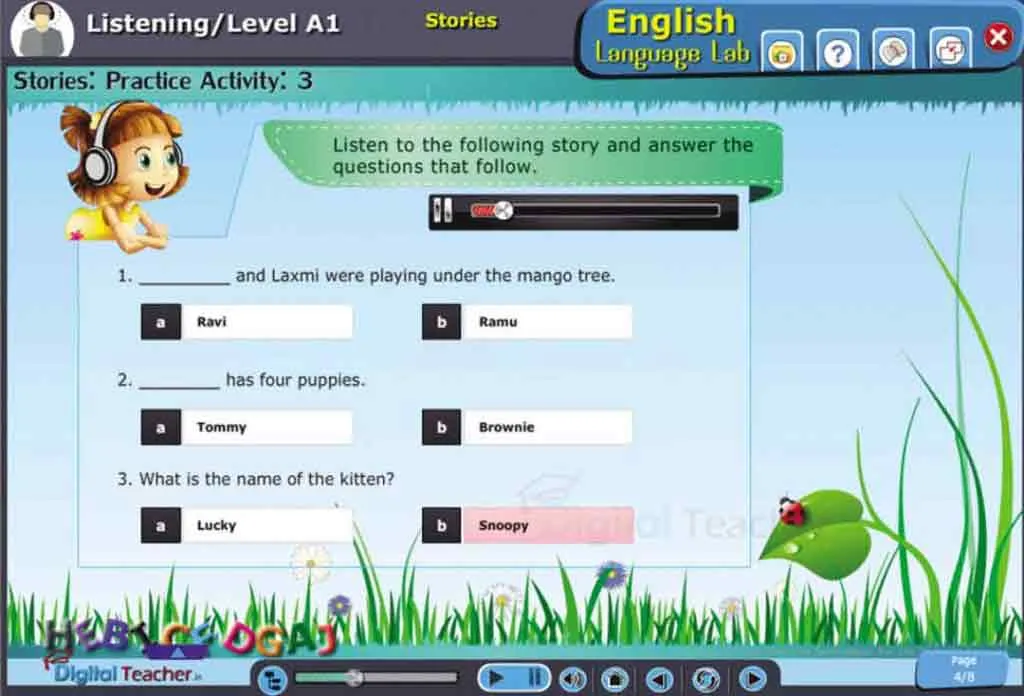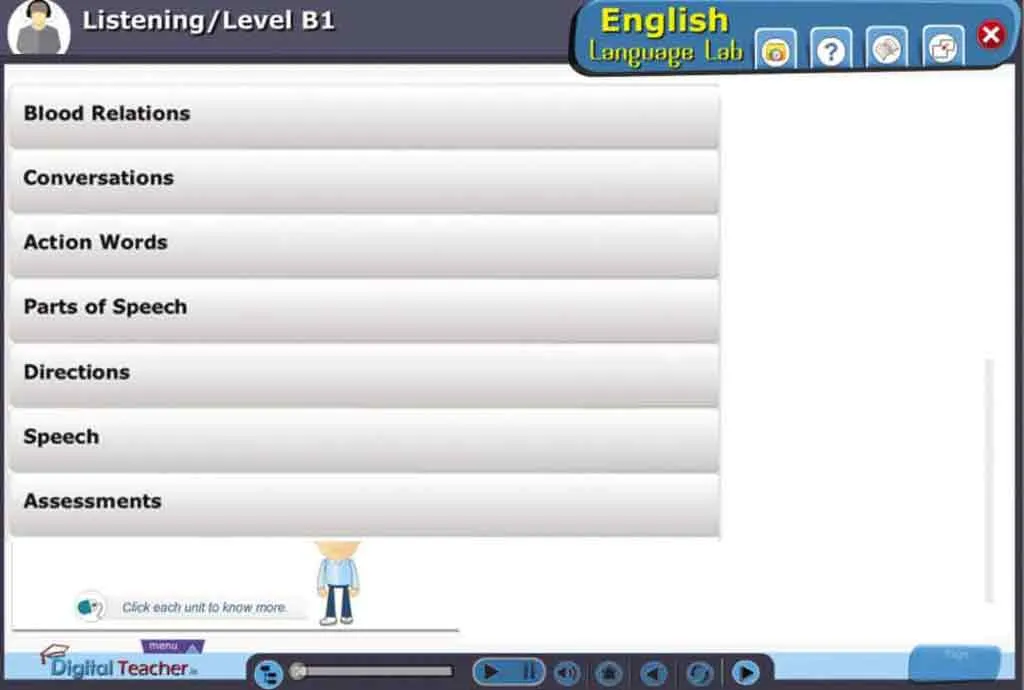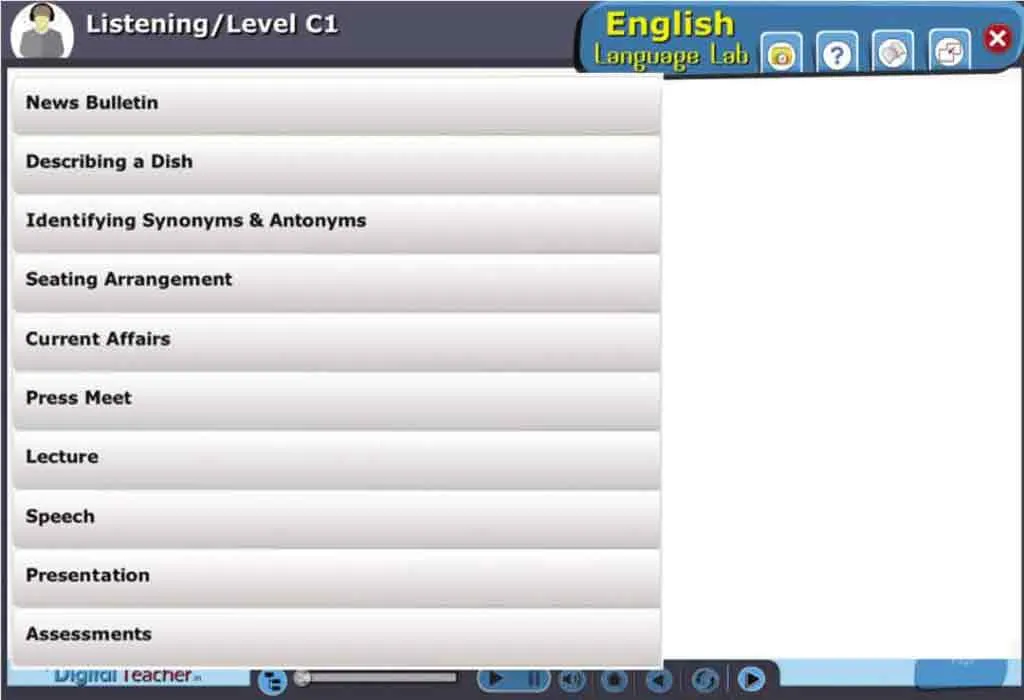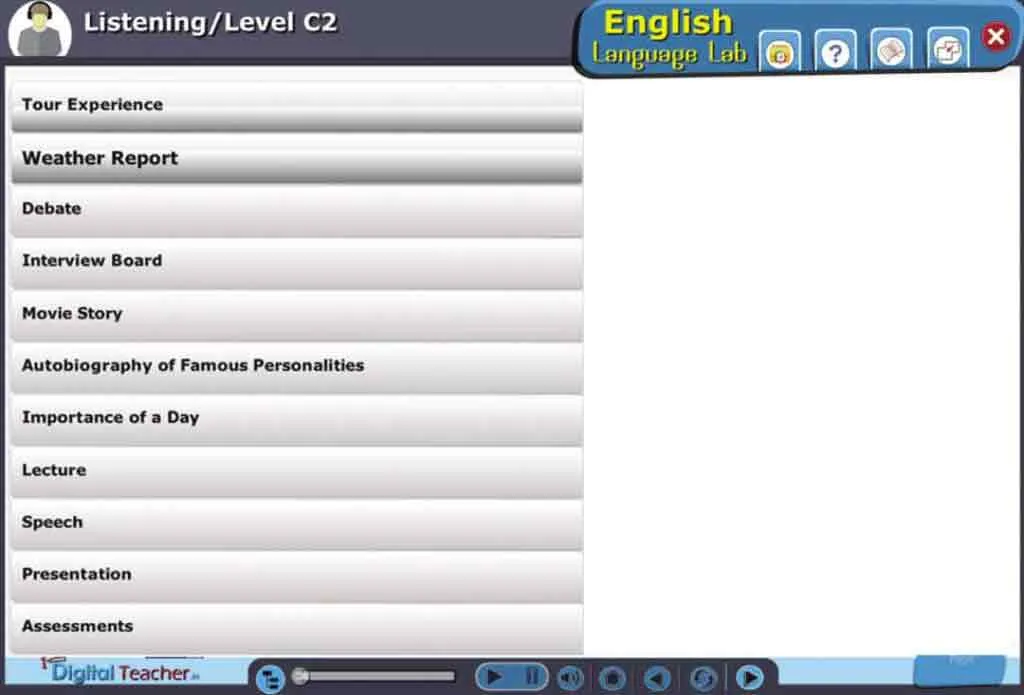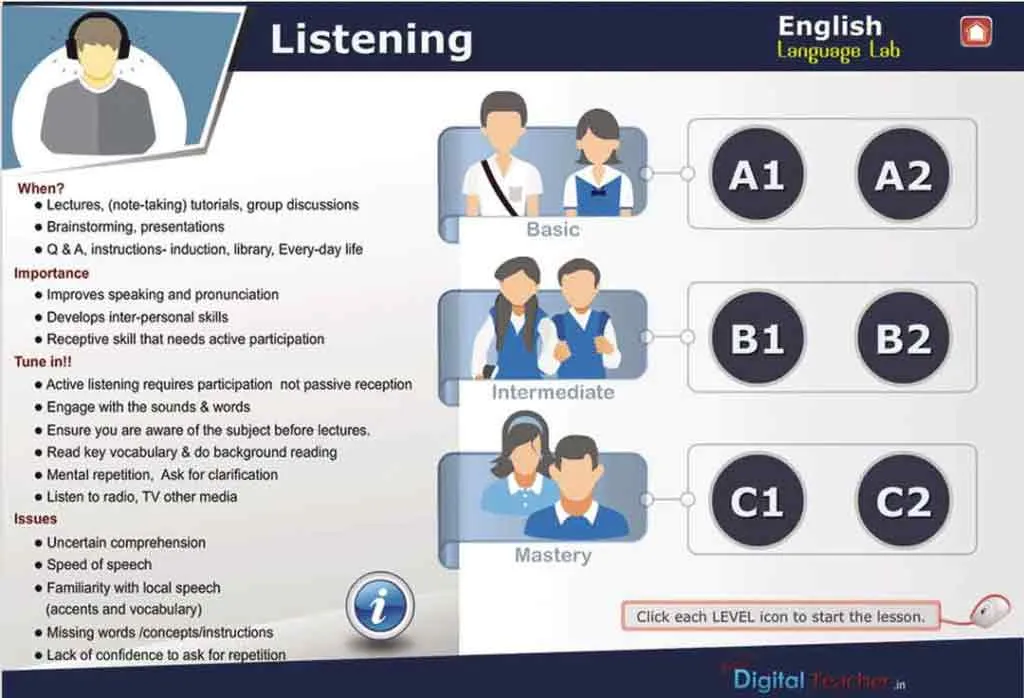Digital Teacher English Language Lab – Listening
Listening Skills: Learn to Understand Better with the English Language Lab
Good communication starts with good listening skills. At English Language Lab, we help learners not just hear—but truly understand—what others are saying. Whether you're a student, professional, or language learner, improving your listening can change the way you connect with people.
What Are Listening Skills?
Listening skills are your ability to focus on and understand spoken information. It’s more than just hearing. It means paying attention, processing what you hear, and responding in the right way. These skills are important in school, work, and daily life.
At English Language Lab, we teach listening the smart way—through real examples, practice audio, and guided lessons.
Why Are Active Listening Skills Important?
Active listening skills go a step further. This means giving full attention to the speaker, understanding their message, and showing that you’re listening by nodding, asking questions, or giving feedback.
Strong active listening skills help you:
- Avoid misunderstandings
- Build better relationships
- Learn more effectively
- Respond with confidence
In our lessons, you'll learn how to stay focused, listen without interrupting, and respond with clarity.
Listening Skills and Their Types
There are different types of listening skills, and each has a purpose:
- Discriminative Listening – Hearing differences in sounds and tone
- Comprehensive Listening – Understanding the meaning of words
- Critical Listening – Evaluating what is being said
- Appreciative Listening – Enjoying music, stories, or speeches.
- Empathetic Listening – Understanding feelings and emotions.
At English Language Lab, we introduce you to listening skills and their types using clear examples and interactive audio tasks.
Listening Skills Examples You’ll Learn With Us
Here are a few simple listening skills examples we teach:
- Listening to a short story and answering questions
- Understanding instructions in a classroom or workplace
- Picking the main idea from a conversation
- Responding politely in a discussion
- Identifying tone and mood in a speaker’s voice
These listening skills examples help you improve in real-life situations.
Learn to Listen the Easy Way
With English Language Lab, you’ll improve your listening skills step-by-step. Our platform provides:
- Practice audio clips with clear speech
- Subtitled videos to guide understanding
- Tips to improve active listening skills
- Exercises for all types of listening skills
- Feedback to help you grow
Start Building Better Listening Skills
Great listeners make great learners. With English Language Lab, you can develop strong, practical listening skills that help you in everyday conversations and academic life.
When?
- Lectures, (note-taking) tutorials, group discussions
- Brainstorming, presentations
- Q & A, instructions- induction, library,
- Every-day life
Issues
- Uncertain comprehension
- Speed of speech
- Familiarity with local speech (accents and vocabulary)
- Missing words /concepts/instructions
- Lack of confidence to ask for repetition
- Hearing difficulties
Importance
- Improves speaking and pronunciation
- Develops inter-personal skills
- Receptive skill that needs active participation
Tune in!!
- Active listening requires participation not passive reception
- Engage with the sounds & words
- Ensure you are aware of the subject before lectures.
- Read key vocabulary & do background reading
- Mental repetition
- Ask for clarification
- Listen to radio, TV other media

